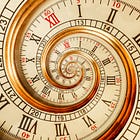Quest for the Elixir
This post is part of an ongoing series. If you’re new to it, you’ll want to read the introduction first (about 6 minutes):
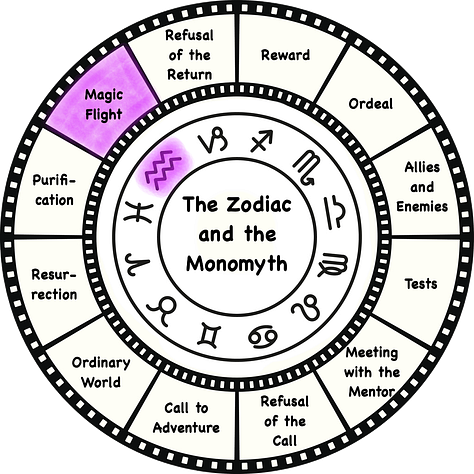
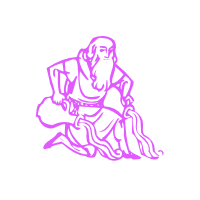
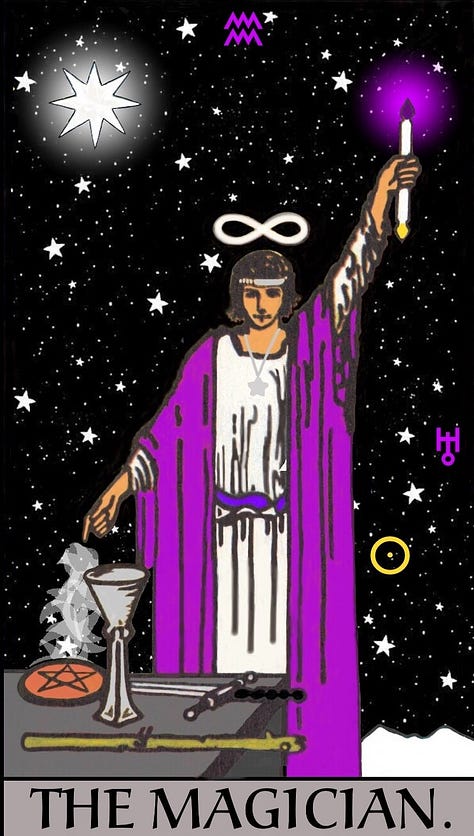
Three Articles About a Chapter of the Universal Story
Each edition of Quest for the Elixir consists of three articles about one of the 12 chapters in the cyclical Universal Story.
The first article is an exploration of the chapter from the perspective of the Hero’s Journey in Joseph Campbell’s monomyth.
The second article is a view of the same chapter in terms of the Zodiac sign corresponding to it in the cycle.
The third article is about the meaning of the chapter as symbolized in a Major Arcana card of the tarot.
During the month of the Sun’s transit through Aquarius, we observe the chapter of Chaos and Creativity in the Universal Story. In celebration, I offer the following three articles:
The Monomyth: The Magic Flight
When we last saw our hero, his return to the Ordinary World had been forestalled by necessary duty and/or satisfaction from the power and advantages of the established system. He was there for the duration.
But any structure or system established in time is a rigid, limiting mold which is itself limited by the nature of time. Though it may have been well intended, over time it will inevitably decay and turn toxic. Though it may guard and protect life temporarily, it will eventually stifle and strangle life that needs to grow beyond it. To function within it, even as a leader, one must repeatedly suppress spontaneous intuition and enthusiasm in favor of a controlled and efficient routine of rules, roles, and norms. Without fresh inspiration for life, the burden of maintaining the system becomes progressively heavier for its human bearer (and those he controls), whose existence eventually degenerates into a kind of living death.
"The theme of the [Holy] Grail is the bringing of life into what is known as 'the wasteland.' The wasteland is the preliminary theme to which the Grail is the answer. . . It's the world of people living inauthentic lives - doing what they are supposed to do." — Joseph Campbell
At some point, the pressure becomes too much, and something’s got to give. And so in our current stage of the universal story, in response to a spontaneous inner push from his (or someone else’s) vital spirit, some taboo is broken, the power of the system is abruptly shattered, and the system-smothered hero suddenly finds himself in the fresh, bracing wind of a Magic Flight.
“Show me a sane man and I will cure him for you.” —Carl Jung
Now he must adapt quickly and resourcefully to the absence of the system. The disorientation can be a fearful shock, but it’s not the disaster it may appear to be. It’s the antidote to the hero’s malaise: a natural, rejuvenating release into a state of creative thought and experimental play.
“The creative act is not hanging on, but yielding to a new creative movement. Awe is what moves us forward.” ― Joseph Campbell
"Only in our creative acts do we step forth into the light and see ourselves whole and complete." — Carl Jung
Campbell tells us that the magic flight is experienced in one of two ways. If the hero has won the blessing of a beneficent god or goddess who explicitly commissions him to return home with the elixir, that entity will help him to return. He will ‘fly’ in relative safety and peace, and if he should encounter trouble, he’ll be rescued.
Example of a Gentle, Protected Flight: The Wizard of Oz
Glinda, the Good Witch of the North, had sent Dorothy on her quest in the first place, and now she shows Dorothy the way home. No one will threaten Dorothy, because her only enemy in Oz, the Wicked Witch of the West, is now gone.
Dorothy needs to get out of the astral dream world of Oz and back to Earth in Kansas. Raising her wand, Glinda instructs Dorothy to tap the heels of her Ruby Slippers* together 3 times while thinking of home, and off Dorothy goes, ‘flying’ home happily on her own magical power. No undue craziness, just a smooth magic tunnel.
We know that Dorothy soon finds herself back at home in Kansas. But for now we’ll leave her between the worlds, because both the monomyth and astrology tell us that she must pass through another phase before she awakens.
Campbell goes on to explain the second way of experiencing the magic flight. If the hero has stolen the elixir or somehow angered gods or demons, his magic flight is a wild and fantastic pursuit. He’s not fully free of his past, and it chases him! On the border between normal and crazy, the scenery is all symbolic of broken rules.
In the movies, we see this in the chaotic chase scenes. We laugh in surprise and excitement as the unbound hero is confronted with a rapid succession of unexpected encounters with the absurd or outrageous. The hero is forced repeatedly to find intuitive, creative ways of adapting to a dazzling kaleidoscope of surprises or shocks, and absolutely anything might happen at any moment. Allusions to sex that sometimes appear are entirely appropriate, because every experience of a wild, improbable juxtaposition is a mental conception of thrilling novelty and new life.
Often during one of these crazy chase scenes, the hero jettisons items he’s been carrying, lightening his load. They are symbols of burdens he’s leaving behind, sacrifices that may also delay his pursuer, like the unnecessary troubles that are no longer the hero’s concern, but are rightfully the burdens of the pursuer who had imposed them. Campbell cites a fairy tale in which an angry hag pursues two little children who toss out a brush, comb and mirror that turn into formidable mountains in the hag’s path.
Examples of Wild and Crazy Flights:
East Bound and Down
[Notice what Sally Field does with her bridal veil at 0:46.]
*One method of exiting from astral projection and re-grounding in Earth reality is to think of your feet.


Aquarius
The three Air signs have to do with mental connections, or thinking. The thought modes of Gemini and Libra are analytical and contextual respectively, both making connections through mental processes relating to given factors. Aquarius alone is the sign of creative thinking, in which the mental process involves interpretation of spontaneous impulses from beyond conscious awareness, seemingly out of nowhere, resulting in ideas that are original and new.
In contrast with Capricorn, which is oriented to the past and formal established structures, Aquarius is as informal and structure-free as possible, open-ended, friendly to experimentation and possibilities for the future. The difference between Capricorn and Aquarius is much like the difference between a solid-colored blanket and a patchwork quilt.
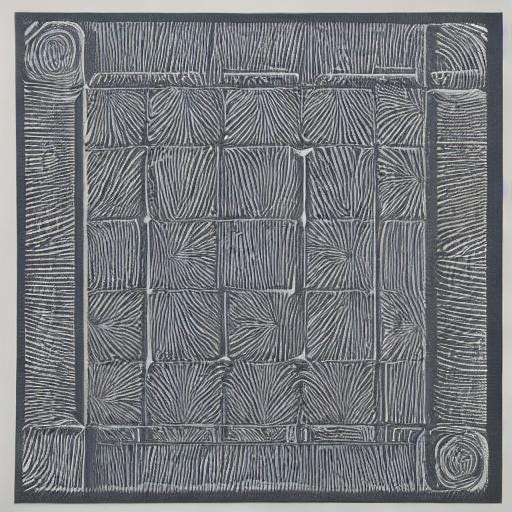

Because in Capricorn the main concern is control and perpetuation of an established structure or system, Capricorn tends to view people in terms of the way they fit into that system. It favors system-supportive conformity, as in the squares of the grey blanket, and hierarchies that reward members for their support. All is well in Capricorn World as long as everyone obeys those at the top of the hierarchy.
Because in Aquarius the main concern is mental stimulation for human creativity and enthusiastic life, Aquarius tends to view people as unique individuals whose creative potential should be encouraged and welcomed. It favors natural diversity, as in the squares of the patchwork quilt, where each unit ‘creates its own design’ but still participates in the general integrity of the whole quilt. All is well in Aquarius World as long as everyone respects one another (however much they may differ or disagree) and cooperates sincerely to maintain peace.
Uniqueness is, in fact, the Aquarian style. It’s experimental, and anything but faddy. It might be peculiar in a futuristic, exotic, or incongruous way. It could be anything or a bit of everything, but it’s never externally ‘programmed’ or artificially “normal”. One can only expect to be startled and surprised in any area described by Aquarius. An Aquarian person is individualistic, nonconformist, creative, open-minded, very tolerant of other people’s idiosyncracies, and tends to be gregarious and social.
In an astrological chart, houses represent the various ‘departments’ of life, and the places where they function. The natural house of Aquarius is the 11th, located in the upper left part of the chart. It’s the house of friends, acquaintances and voluntary organizations around personal interests (described in a chart by whatever sign is on its cusp). It’s basically a ‘clubhouse’ where all kinds of people might be encountered. Groups of people with varying backgrounds often share common ideals, and the 11th house is also known as the “house of hopes and wishes”.
In the language of astrology, planets function as ‘nouns’ or ‘verbs’ that represent or express the various energies of life. Each sign reflects the qualities of the planet which rules it. The ruler of Aquarius is Uranus.
Uranus is an agent of natural human free will, the legitimate power of independent thought and decision. It insists on, and promotes, personal sovereignty in personal matters, and resists external pressure to conform to norms.
As a ‘noun’, Uranus is someone or something that is uniquely itself: unusual, unconventional, startling, surprising, even shocking. Often it’s something futuristic and/or electronic. Above all it’s true to its own nature, so if it happens to have conventional characteristics, it’s not conformity but the way it really is by nature.
As a ‘verb’, Uranus acts as a catalyst for life, liberation, and new conception. Its action is sudden, like lightning, cracking through rigid structures, shattering and scattering the ‘pieces’ so that individual minds are free to redirect disrupted ‘programmed’ patterns of thought in creative new ways. Uranus may or may not bring literal physical destruction or damage, but it does whatever it takes to shake us and wake us up to the need for change. Wherever Uranus is, novelty blows into our ordered world, and we can only expect the unexpected and a challenge to adapt as seems best to us.
Like all the planetary energies, Uranus has both positive and negative expressions. Its positive side is inspired, stimulating, and innovative, free of former arbitrary restrictions without being so extreme as to be unnecessarily destructive. There is openness to new, unusual ways of thinking and doing things, but not at the risk of fundamental necessities of natural life, and without imposition or malice toward anyone.
The negative side of Uranus comes in where disoriented people revel in hostility toward the past and its supporters, embracing the violence of the shattering, without thought beyond “tradition=bad, defiance=good”, stirring things up for shock value alone, intent on replacing an oppressive old system with an imposed and equally oppressive new one, without respect for others or interest in the constructive creativity that is the true purpose of Uranian action and its reflection in Aquarius.
“Revolution doesn't have to do with smashing something; it has to do with bringing something forth. If you spend all your time thinking about that which you are attacking, then you are negatively bound to it. You have to find the zeal in yourself and bring that out.” ― Joseph Campbell, Pathways to Bliss: Mythology and Personal Transformation
When revolution is necessary, the real imperative is not to attack and fight a dysfunctional system, but to simply abandon it and create a new, more flexible arrangement that functions well.
The Magician
Under a sky full of stars and the watch of his personal guiding star stands the Magician of the Major Arcana. Although there is snow on the ground behind him, a symbol of infinity over his head shows his awareness of eternal life rather than anticipation of a frozen end. His white undertunic symbolizes his inner, spiritual unity with Purity and Truth. His purple outer robe reflects an alignment of his mind with the high-frequency creative power of Uranus. Before him is an altar containing the magical tools his work requires: symbols of the Four Elements of Life.
We say that the Magician is there to do work, but the creative work he does can only be effective if he does it through purposeful play.
"The dynamic principle of fantasy is play, a characteristic also of the child, and as such it appears inconsistent with the principle of serious work. But without this playing with fantasy no creative work has ever yet come to birth. The debt we owe to the play of imagination is incalculable. It is therefore short-sighted to treat fantasy, on account of its risky or unacceptable nature, as a thing of little worth." — Carl Jung
The popular notion of a magician is a clever person doing parlor tricks to fool an audience into believing he has extraordinary personal power. But a real magician is an introspective person whose understanding of his own psyche includes a concept of his connection with the Divine Source. He isn’t trying to impress an audience, or “play God”, or even “make anything he wants happen”. He knows very well that whatever power he has originates not with himself, but with the Divine Source. And he’s very aware that any hubris on the part of his ego would not end well.
What the Magician wants is the experience of conscious participation in the natural manifestation of divine power. The Source provides energies of various ‘colors’, and the human mind naturally contributes to the shaping of their subsequent manifestations through its (limited) choices and decisions. Everyone does that unconsciously all the time! The Magician is only different from most people because he is aware of doing it. But real awareness includes due humility and a passion for truth. People who acknowledge no power higher than their own egos and are closed to transcendent truth tend to make unwise decisions and plans that fail.
"The creation of something new is not accomplished by the intellect but by the play instinct acting from inner necessity. The creative mind plays with the objects it loves." — Carl Jung
The language of the inner, astral world being images, the open-minded Magician plays intuitively with visualizations and symbolic objects as well as words. In a ‘nutshell’, the creative Uranian energy comes through the Cosmos like a flash of lightning, and the Magician ‘catches’ it as intuitive Fire. From there his Airy thinking function identifies it and decides what to do with it. A picture of his decision then ‘gestates’ in his Watery imagination, and eventually it ‘comes to birth’ on Earth. Depending on the situation, the decisions of others may modify the final result, but he always has at least an effective ‘vote’ on it.
Now let’s take another look at the Magician, with the problem of the “barren wasteland” in mind. On the altar, that would be the Earth symbol, the Pentacle lying there like a spent battery. There is no hope from the established system of reviving the life it drained from that Pentacle. Nobody knows what to do next. Only the very Source of Life can supply the needed help, and only through a human mind that is receptive to it.
With a prayerful invocation, the Magician raises his left arm to receive the impulse from beyond the starry cosmos. The impulse strikes, and intuitively he receives the ‘download’, which passes through him for mental interpretation and decision. Now the Magician has a creative idea! Down flows the energy through his right arm (past the Cup) as he visualizes and feels his intent. At last the energy he is channeling flows into the Pentacle, which is now recharged. This is conception, the ‘fertilization of a seed’, creation of something needed and new, with its pathway to manifestation defined.
Of course, The Magician is a tarot card, meant to give us an idea. We don’t need his paraphernalia and formal ritual to work our own creative magic. Like Dorothy, we’ve always had the power. If we have the Magician’s attitude and stay receptive to input from the Divine, some planetary transit involving Uranus will occasionally come along and drop us an exciting and inspiring ‘instant download’.
In divination I read the Magician as someone’s inspired creative thinking and constructive originality.
If it’s reversed, I take it as a failure to come up with a creative idea, maybe because the mind is not sufficiently receptive to divine input, or because it’s simply the wrong time for it.





